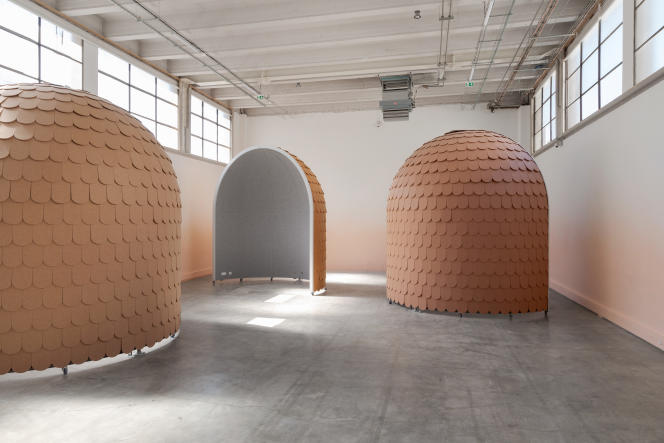” Much better. » This is the name of a new offer, integrated into the Culture Pass, that the Palais de Tokyo will offer in October to young people aged 15-22 suffering from emotional fragility. Helping people get better is also the ambition of Hamo, the mediation department that the Parisian art center is inaugurating on September 15. Enveloping spaces, with their shades of blue and powder pink, alveolar shapes lined with felt and absorbent acoustics… Everything, in the scenography created by the eclectic agency Freaks Architecture, contributes to putting the public at ease, in particular – c t is the art center’s current priority – those suffering from psychological or neurological disorders.
“We prefer to talk about neurodiversity, corrects Guillaume Désanges, the president of the Palais de Tokyo, psychological identities that must be supported and cared for rather than corrected. » Above all, avoid the lexicon of illness or disability, these words which fix and freeze. “The objective is not to cure but to emancipate, outside the medical circuit”confirms Yoann Gourmel, director of audiences and cultural programming.
Relieving depressive episodes, discouraging suicidal thoughts, supporting people with autism spectrum disorders… In these areas, the art world does not claim to replace medicine but, more simply, to take its part.
Nathalie Bondil, who has been running a seminar on museotherapy at the Ecole du Louvre for three years, says it naturally. “It makes sense, aesthetic emotion is consubstantial with our health”argues the director of the museum of the Arab World Institute, one of the first to have launched “art and health” systems in 2012 when she directed the Montreal Museum of Fine Arts. “Museums have, until now, served tourism, the economy and diplomacy, it is normal that they contribute to public health”, she adds. While she was directing the Montreal Museum, she observed the initiative of MoMA in New York, which, from 2007 to 2014, welcomed Alzheimer’s patients. Since then, experiments to accommodate patients in psychological distress have multiplied in the United Kingdom and Belgium.
Innovative partnerships
In France, the Louvre and the Louvre-Lens have established innovative partnerships with the hospital sector. More recently, in June, Paris Musées followed suit by launching the Bulle d’art system with the Assistance publique-Hôpitaux de Paris (AP-HP).
You have 72.47% of this article left to read. The rest is reserved for subscribers.
